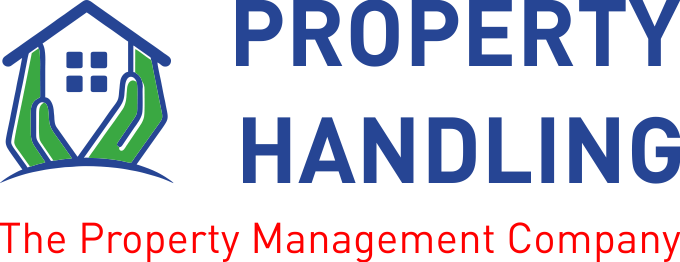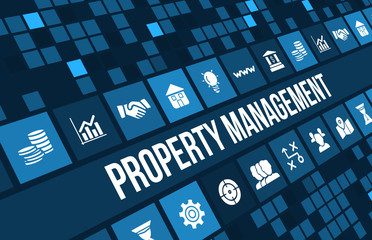The Role of Property Management in Community Living
Property management plays a pivotal role in shaping the dynamics of community living environments. In today’s increasingly urbanized and interconnected world, the management of residential properties extends beyond mere maintenance tasks to encompass fostering a sense of community, promoting resident well-being, and enhancing overall quality of life. Property managers serve as the linchpin between property owners and residents, tasked with ensuring that the community functions smoothly, residents’ needs are met, and a harmonious living environment is maintained. In this discussion, we will delve into the multifaceted role of property management in community living and explore how property managers contribute to creating thriving and inclusive residential communities.
How does property management foster community within rental properties?
Effective property management plays a crucial role in fostering a sense of community within rental properties by implementing various initiatives and practices. Firstly, property managers can organize community events and activities such as barbecues, movie nights, or fitness classes, providing opportunities for residents to interact and build relationships. Additionally, creating communal spaces such as lounges, courtyards, or shared gardens encourages socialization among residents. Property managers can also facilitate communication by establishing resident forums or social media groups where tenants can connect, share information, and participate in discussions. Moreover, property managers can implement policies that promote a friendly and inclusive atmosphere, such as pet-friendly policies or guidelines for neighborly behavior.
By addressing maintenance issues promptly and maintaining well-kept common areas, property managers contribute to a positive living environment that enhances resident satisfaction and fosters a sense of belonging. Furthermore, property managers can organize volunteer or community service initiatives, allowing residents to come together for a common cause and strengthen their bonds. Regular communication through newsletters, emails, or bulletin boards keeps residents informed about community events, updates, and important announcements. Overall, effective property management plays a pivotal role in creating a vibrant and cohesive community within rental properties, where residents feel connected, supported, and valued. By fostering social interactions, promoting inclusivity, and maintaining a welcoming environment, property managers contribute to a higher quality of life for residents and a stronger sense of community within the property.
Read More About Navigating Property Maintenance
Key Responsibilities of Property Managers for Residents’ Well-being
Property managers have several key responsibilities aimed at maintaining the quality of life and well-being of residents in community living environments. Firstly, they oversee the maintenance and upkeep of the property to ensure that it meets safety, health, and aesthetic standards. This includes regular inspections, addressing maintenance requests promptly, and ensuring that common areas are clean and well-maintained. Secondly, property managers play a crucial role in fostering a positive and inclusive atmosphere within the community.
They facilitate communication among residents, address disputes or conflicts, and promote a sense of belonging through community-building initiatives such as social events, clubs, or volunteer opportunities. Moreover, property managers are responsible for ensuring that residents have access to essential amenities and services, such as parking facilities, laundry facilities, and security measures. They also play a role in enforcing community rules and regulations to maintain order and ensure the safety and comfort of all residents.
Promoting Resident Interaction and Conflict Resolution for Harmonious Community Living
Property managers play a vital role in promoting communication and resolving conflicts among residents to foster community harmony. Firstly, they can facilitate open channels of communication by organizing regular meetings, creating online forums, or establishing communication platforms where residents can voice their concerns and suggestions. Additionally, property managers can implement conflict resolution strategies, such as mediation or facilitated discussions, to address disputes and disagreements in a fair and impartial manner. By actively listening to residents’ perspectives and working towards mutually beneficial solutions, property managers can help build understanding and promote a culture of respect and cooperation within the community. Moreover, providing clear guidelines and policies for resolving conflicts, along with training or education on effective communication and conflict resolution techniques, can empower residents to handle disputes constructively.
Ultimately, by fostering communication and proactively addressing conflicts, property managers contribute to a harmonious living environment where residents feel valued, respected, and connected to their community. Property managers can foster communication and conflict resolution among residents through various proactive approaches. They can initiate community-building activities such as social gatherings, workshops, or neighborhood clean-up events, creating opportunities for residents to interact positively and establish connections.
Ensuring Residents’ Safety and Security in Community Management
Property managers can employ various strategies to ensure residents’ safety and security within the community. Firstly, they can implement robust security measures such as installing surveillance cameras, adequate lighting in common areas, and secure entry systems to deter unauthorized access. Conducting regular security assessments and collaborating with local law enforcement can help identify potential risks and address security vulnerabilities proactively.
Additionally, property managers can establish clear safety protocols and emergency procedures, including fire evacuation plans, medical emergency response protocols, and disaster preparedness measures. Providing residents with access to emergency contact information and resources enhances their preparedness and confidence in handling unexpected situations. Moreover, fostering a sense of community vigilance by encouraging residents to report suspicious activities or concerns to property management promotes collective responsibility for safety. Implementing neighborhood watch programs or resident patrols further strengthens security efforts and fosters a sense of ownership and involvement among residents.
Read More About The Future of Real Estate: Trends in Property Management
Boosting Resident Engagement with Community Events
Property managers can organize community events in several ways to boost resident engagement and satisfaction. Firstly, they can host regular social gatherings such as potluck dinners, movie nights, or game tournaments to provide opportunities for residents to interact and bond with their neighbors. Additionally, organizing educational workshops or seminars on topics of interest to residents, such as financial planning, health and wellness, or home maintenance tips, can offer valuable information while fostering a sense of community. Moreover, property managers can coordinate seasonal events or holiday celebrations, such as summer BBQs, Halloween costume contests, or festive parties, to create memorable experiences and strengthen community ties. Engaging residents in planning and organizing these events can further enhance their sense of ownership and involvement in the community.
Furthermore, property managers can leverage digital platforms such as social media groups or community websites to promote events, share updates, and encourage participation. Sending out regular newsletters or emails with event calendars and announcements helps keep residents informed and engaged. In addition to traditional events, property managers can explore creative initiatives such as community service projects, volunteer opportunities, or hobby groups tailored to residents’ interests and preferences. By offering a diverse range of activities and opportunities for residents to connect and contribute, property managers can foster a vibrant and inclusive community where residents feel valued, connected, and satisfied with their living experience.
Cities where our Property Management Services are offered :
- Property Management in Hyderabad
- Property Management in Vijayawada
- Property Management in Vizag
- Property Management in Guntur
Conclusion :
In conclusion, property management is indispensable for nurturing vibrant and cohesive communities where residents feel connected, supported, and valued. From facilitating communication and conflict resolution to organizing community events and ensuring safety and security, property managers play a pivotal role in enhancing the quality of life for residents. By fostering a sense of belonging, promoting engagement, and addressing residents’ needs and concerns, property managers contribute to creating an environment where residents thrive and enjoy a high quality of life. Ultimately, effective property management is essential for fostering community living environments that are not only well-maintained but also nurturing, inclusive, and enriching for all residents involved.
Related Posts
Integrating Advanced Tech in Property Management
Integrating Advanced Technology into Property Management Services for Enhanced Efficiency In an era defined by…
Cost-Effective Solutions for Managing Maintenance in Property Management Services
Cost-Effective Solutions for Managing Maintenance in Property Management Services. In the realm of property management…
The Role of Property Management in Community Living
The Role of Property Management in Community Living Property management plays a pivotal role in…
Effective Tenant Retention Strategies
Effective Tenant Retention Strategies Effective tenant retention strategies are essential for landlords and property managers…






